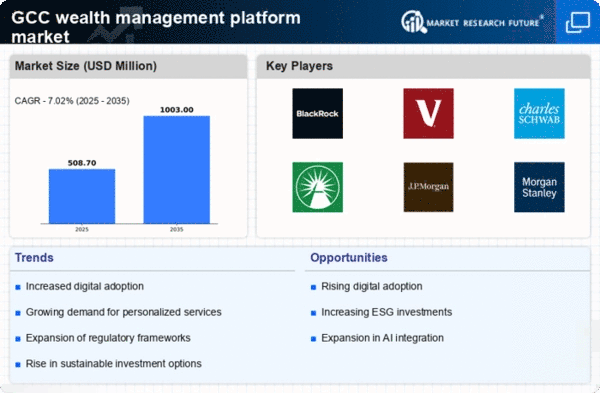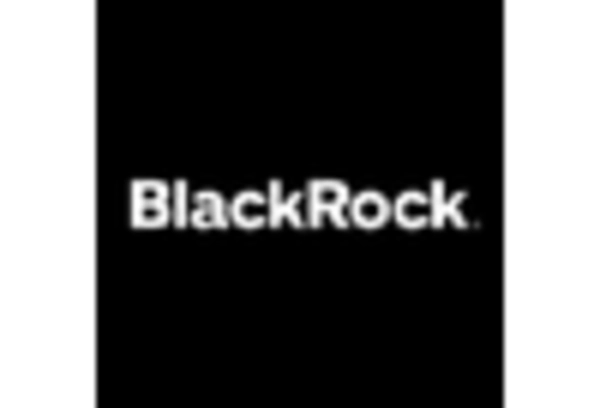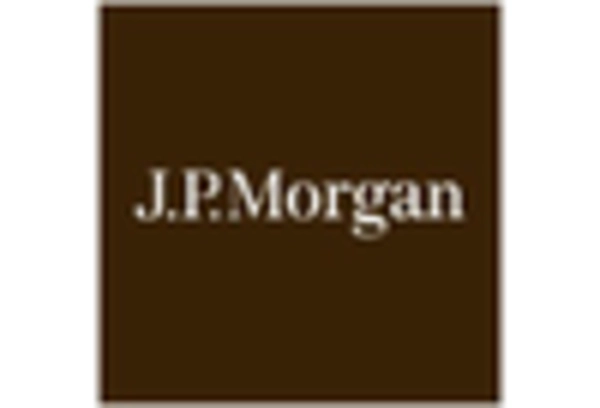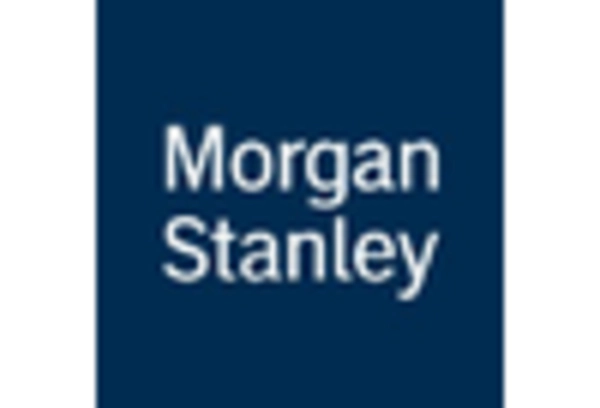Evolving Client Expectations
In the wealth management-platform market, evolving client expectations are driving significant changes in service delivery. Clients today seek more than just traditional investment advice; they demand personalized, transparent, and holistic financial solutions. This shift is particularly evident in the GCC, where clients are increasingly interested in sustainable and socially responsible investment options. As a result, wealth management firms are adapting their strategies to incorporate environmental, social, and governance (ESG) criteria into their offerings. This trend is expected to influence approximately 40% of investment decisions by 2026, indicating a substantial shift in client priorities. Firms that can effectively respond to these evolving expectations are likely to gain a competitive edge in the wealth management-platform market.
Increased Focus on Financial Literacy
The wealth management platform market is witnessing an increased focus on financial literacy, particularly among younger generations in the GCC. As financial products become more complex, there is a pressing need for educational initiatives that empower clients to make informed investment decisions. Financial institutions are responding by offering workshops, webinars, and digital resources aimed at enhancing financial knowledge. This trend is likely to resonate with millennials and Gen Z, who are becoming more involved in wealth management. By 2026, it is projected that financial literacy programs could influence up to 25% of new client acquisitions in the wealth management-platform market. Firms that prioritize education and client engagement are expected to cultivate a more loyal client base and drive sustainable growth.
Rising Affluence and Investment Demand
The wealth management platform market is significantly influenced by the rising affluence in the GCC region. As disposable incomes increase, there is a growing demand for sophisticated investment solutions among high-net-worth individuals (HNWIs) and affluent clients. Recent data indicates that the number of HNWIs in the GCC has grown by over 15% in the past year, leading to an increased appetite for wealth management services. This demographic shift is prompting financial institutions to enhance their offerings, focusing on tailored investment strategies and comprehensive financial planning. The wealth management-platform market is likely to benefit from this trend, as firms strive to meet the evolving needs of a more affluent client base, thereby expanding their market share and enhancing client retention.
Regulatory Changes and Compliance Requirements
The wealth management platform market is currently navigating a landscape marked by evolving regulatory changes and compliance requirements in the GCC. Financial institutions are facing increased scrutiny from regulatory bodies, necessitating the implementation of robust compliance frameworks. This environment is compelling firms to invest in technology solutions that enhance compliance monitoring and reporting capabilities. As of 2025, it is estimated that compliance-related expenditures in the financial sector will rise by 20%, reflecting the growing importance of adhering to regulatory standards. Consequently, wealth management firms that proactively address these compliance challenges are likely to strengthen their market position and build trust with clients, thereby fostering long-term relationships in the wealth management-platform market.
Technological Advancements in Wealth Management
The wealth management-platform market is experiencing a surge in technological advancements, particularly in the GCC region. Innovations such as artificial intelligence (AI), machine learning, and blockchain technology are reshaping how wealth management services are delivered. These technologies enhance data analytics capabilities, enabling firms to provide personalized investment strategies and risk assessments. As of 2025, the adoption of AI in financial services is projected to increase by approximately 30%, indicating a strong trend towards automation and efficiency. Furthermore, the integration of robo-advisors is making wealth management services more accessible to a broader audience, including younger investors. This shift is likely to drive growth in the wealth management-platform market, as firms that leverage technology effectively can differentiate themselves in a competitive landscape.

















